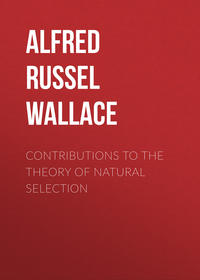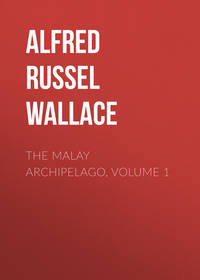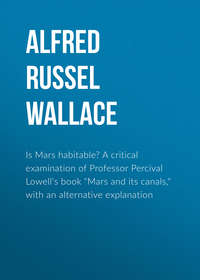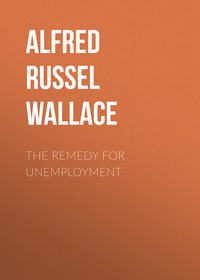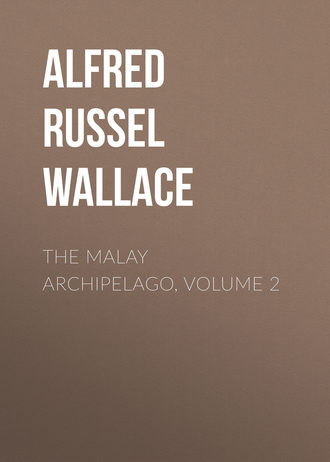 полная версия
полная версияThe Malay Archipelago, Volume 2
During the two weeks which I spent in this little settlement, I had good opportunities of observing the natives at their own home, and living in their usual manner. There is a great monotony and uniformity in everyday savage life, and it seemed to me a more miserable existence than when it had the charm of novelty. To begin with the most important fact in the existence of uncivilized peoples—their food—the Aru men have no regular supply, no staff of life, such as bread, rice, mandiocca, maize, or sago, which are the daily food of a large proportion of mankind. They have, however, many sorts of vegetables, plantains, yams, sweet potatoes, and raw sago; and they chew up vast quantities of sugar-cane, as well as betel-nuts, gambir, and tobacco. Those who live on the coast have plenty of fish; but when inland, as we are here, they only go to the sea occasionally, and then bring home cockles and other shell-fish by the boatload. Now and then they get wild pig or kangaroo, but too rarely to form anything like a regular part of their diet, which is essentially vegetable; and what is of more importance, as affecting their health, green, watery vegetables, imperfectly cooked, and even these in varying and often in sufficient quantities. To this diet may be attributed the prevalence of skin diseases, and ulcers on the legs and joints. The scurfy skin disease so common among savages has a close connexion with the poorness and irregularity of their living. The Malays, who are never without their daily rice, are generally free from it; the hill-Dyaks of Borneo, who grow rice and live well, are clean skinned while the less industrious and less cleanly tribes, who live for a portion of the year on fruits and vegetables only, are very subject to this malady. It seems clear that in this, as in other respects, man is not able to make a beast of himself with impunity, feeding like the cattle on the herbs and fruits of the earth, and taking no thought of the morrow. To maintain his health and beauty he must labour to prepare some farinaceous product capable of being stored and accumulated, so as to give him a regular supply of wholesome food. When this is obtained, he may add vegetables, fruits, and meat with advantage.
The chief luxury of the Aru people, besides betel and tobacco, is arrack (Java rum), which the traders bring in great quantities and sell very cheap. A day's fishing or rattan cutting will purchase at least a half-gallon bottle; and when the tripang or birds' nests collected during a season are sold, they get whole boxes, each containing fifteen such bottles, which the inmates of a house will sit round day and night till they have finished. They themselves tell me that at such bouts they often tear to pieces the house they are in, break and destroy everything they can lay their hands on, and make such an infernal riot as is alarming to behold.
The houses and furniture are on a par with the food. A rude shed, supported on rough and slender sticks rather than posts, no walls, but the floor raised to within a foot of the eaves, is the style of architecture they usually adopt. Inside there are partition walls of thatch, forming little boxes or sleeping places, to accommodate the two or three separate families that usually live together. A few mats, baskets, and cooking vessels, with plates and basins purchased from the Macassar traders, constitute their whole furniture; spears and bows are their weapons; a sarong or mat forms the clothing of the women, a waistcloth of the men. For hours or even for days they sit idle in their houses, the women bringing in the vegetables or sago which form their food. Sometimes they hunt or fish a little, or work at their houses or canoes, but they seem to enjoy pure idleness, and work as little as they can. They have little to vary the monotony of life, little that can be called pleasure, except idleness and conversation. And they certainly do talk! Every evening there is a little Babel around me: but as I understand not a word of it, I go on with my book or work undisturbed. Now and then they scream and shout, or laugh frantically for variety; and this goes on alternately with vociferous talking of men, women, and children, till long after I am in my mosquito curtain and sound asleep.
At this place I obtained some light on the complicated mixture of races in Aru, which would utterly confound an ethnologist. Many of the natives, though equally dark with the others, have little of the Papuan physiognomy, but have more delicate features of the European type, with more glossy, curling hair: These at first quite puzzled me, for they have no more resemblance to Malay than to Papuan, and the darkness of skin and hair would forbid the idea of Dutch intermixture. Listening to their conversation, however, I detected some words that were familiar to me. "Accabó" was one; and to be sure that it was not an accidental resemblance, I asked the speaker in Malay what "accabó" meant, and was told it meant "done or finished," a true Portuguese word, with its meaning retained. Again, I heard the word "jafui" often repeated, and could see, without inquiry, that its meaning was "he's gone," as in Portuguese. "Porco," too, seems a common name, though the people have no idea of its European meaning. This cleared up the difficulty. I at once understood that some early Portuguese traders had penetrated to these islands, and mixed with the natives, influencing their language, and leaving in their descendants for many generations the visible characteristics of their race. If to this we add the occasional mixture of Malay, Dutch, and Chinese with the indigenous Papuans, we have no reason to wonder at the curious varieties of form and feature occasionally to be met with in Aru. In this very house there was a Macassar man, with an Aru wife and a family of mixed children. In Dobbo I saw a Javanese and an Amboyna man, each with an Aru wife and family; and as this kind of mixture has been going on for at least three hundred years, and probably much longer, it has produced a decided effect on the physical characteristics of a considerable portion of the population of the islands, more especially in Dobbo and the parts nearest to it.
March 28th.—The "Orang-kaya" being very ill with fever had begged to go home, and had arranged with one of the men of the house to go on with me as his substitute. Now that I wanted to move, the bugbear of the pirates was brought up, and it was pronounced unsafe to go further than the next small river. This world not suit me, as I had determined to traverse the channel called Watelai to the "blakang-tana;" but my guide was firm in his dread of pirates, of which I knew there was now no danger, as several vessels had gone in search of them, as well as a Dutch gunboat which had arrived since I left Dobbo. I had, fortunately, by this time heard that the Dutch "Commissie" had really arrived, and therefore threatened that if my guide did not go with me immediately, I would appeal to the authorities, and he would certainly be obliged to gig a back the cloth which the "Orang-kaya" had transferred to him in prepayment. This had the desired effect; matters were soon arranged, and we started the next morning. The wind, however, was dead against us, and after rowing hard till midday we put in to a small river where there were few huts, to cook our dinners. The place did not look very promising, but as we could not reach our destination, the Watelai river, owing to the contrary wind, I thought we might as well wait here a day or two. I therefore paid a chopper for the use of a small shed, and got my bed and some boxes on shore. In the evening, after dark, we were suddenly alarmed by the cry of "Bajak! bajak!" (Pirates!) The men all seized their bows and spears, and rushed down to the beach; we got hold of our guns and prepared for action, but in a few minutes all came back laughing and chattering, for it had proved to be only a small boat and some of their own comrades returned from fishing. When all was quiet again, one of the men, who could speak a little Malay, came to me and begged me not to sleep too hard. "Why?" said I. "Perhaps the pirates may really come," said he very seriously, which made me laugh and assure him I should sleep as hard as I could.
Two days were spent here, but the place was unproductive of insects or birds of interest, so we made another attempt to get on. As soon as we got a little away from the land we had a fair wind, and in six hours' sailing reached the entrance of the Watelai channel, which divides the most northerly from the middle portion of Aru. At its mouth this was about half a mile wide, but soon narrowed, and a mile or two on it assumed entirely the aspect of a river about the width of the Thames at London, winding among low but undulating and often hilly country. The scene was exactly such as might be expected in the interior of a continent. The channel continued of a uniform average width, with reaches and sinuous bends, one bank being often precipitous, or even forming vertical cliffs, while the other was flat and apparently alluvial; and it was only the pure salt-water, and the absence of any stream but the slight flux and reflux of the tide, that would enable a person to tell that he was navigating a strait and not a river. The wind was fair, and carried us along, with occasional assistance from our oars, till about three in the afternoon, when we landed where a little brook formed two or three basins in the coral rock, and then fell in a miniature cascade into the salt water river. Here we bathed and cooked our dinner, and enjoyed ourselves lazily till sunset, when we pursued our way for two hours snore, and then moored our little vessel to an overhanging tree for the night.
At five the next morning we started again, and in an hour overtook four large praus containing the "Commissie," who had come from Dobbo to make their official tour round the islands, and had passed us in the eight. I paid a visit to the Dutchmen, one of whom spoke a little English, but we found that we could get on much better with Malay. They told me that they had been delayed going after the pirates to one of the northern islands, and had seen three of their vessels but could not catch them, because on being pursued they rowed out in the wind's eye, which they are enabled to do by having about fifty oars to each boat. Having had some tea with thorn, I bade them adieu, and turned up a narrow channel which our pilot said would take us to the village of Watelai, on the west side of Are. After going some miles we found the channel nearly blocked up with coral, so that our boat grated along the bottom, crunching what may truly be called the living rock. Sometimes all hands had to get out and wade, to lighten the vessel and lift it over the shallowest places; but at length we overcame all obstacles and reached a wide bay or estuary studded with little rocks and islets, and opening to the western sea and the numerous islands of the "blakang-tuna." I now found that the village we were going to was miles away; that we should have to go out to sea, and round a rocky point. A squall seemed coming on, and as I have a horror of small boats at sea, and from all I could learn Watelai village was not a place to stop at (no birds of Paradise being found there), I determined to return and go to a village I had heard of up a tributary of the Watelai river, and situated nearly in the centre of the mainland of Aru. The people there were said to be good, and to be accustomed to hunting and bird-catching, being too far inland to get any part of their food from the sea. While I was deciding this point the squall burst upon us, and soon raised a rolling sea in the shallow water, which upset an oil bottle and a lamp, broke some of my crockery, and threw us all into confusion. Rowing hard we managed to get back into the main river by dusk, and looked out for a place to cook our suppers. It happened to be high water, and a very high tide, so that every piece of sand or beach was covered, and it was with the greatest difficulty, and after much groping in the dark, that we discovered a little sloping piece of rock about two feet square on which to make a fire and cook some rice. The next day we continued our way back, and on the following day entered a stream on the south side of the Watelai river, and ascending to where navigation ceased found the little village of Wanumbai, consisting of two large houses surrounded by plantations, amid the virgin forests of Aru.
As I liked the look of the place, and was desirous of staying some time, I sent my pilot to try and make a bargain for house accommodation. The owner and chief man of the place made many excuses. First, he was afraid I would not like his house, and then was doubtful whether his son, who was away, would like his admitting me. I had a long talk with him myself, and tried to explain what I was doing, and how many things I would buy of them, and showed him my stock of heads, and knives, and cloth, and tobacco, all of which I would spend with his family and friends if he would give me house-room. He seemed a little staggered at this, and said he, would talk to his wife, and in the meantime I went for a little walk to see the neighbourhood. When I came back, I again sent my pilot, saying that I would go away if he would not dive me part of his house. In about half an hour he returned with a demand for about half the cost of building a house, for the rent of a small portion of it for a few weeks. As the only difficulty now was a pecuniary one, I got out about ten yards of cloth, an axe, with a few beads and some tobacco, and sent them as my final offer for the part of the house which I had before pointed out. This was accepted after a little more talk, and I immediately proceeded to take possession.
The house was a good large one, raised as usual about seven feet on posts, the walls about three or four feet more, with a high-pitched roof. The floor was of bamboo laths, and in the sloping roof way an immense shutter, which could be lifted and propped up to admit light and air. At the end where this was situated the floor was raised about a foot, and this piece, about ten feet wide by twenty long, quite open to the rest of the house, was the portion I was to occupy. At one end of this piece, separated by a thatch partition, was a cooking place, with a clay floor and shelves for crockery. At the opposite end I had my mosquito curtain hung, and round the walls we arranged my boxes and other stores, fated up a table and seat, and with a little cleaning and dusting made the place look quite comfortable. My boat was then hauled up on shore, and covered with palm-leaves, the sails and oars brought indoors, a hanging-stage for drying my specimens erected outside the house and another inside, and my boys were set to clean their gnus and get all ready for beginning work.
The next day I occupied myself in exploring the paths in the immediate neighbourhood. The small river up which we had ascended ceases to be navigable at this point, above which it is a little rocky brook, which quite dries up in the hot season. There was now, however, a fair stream of water in it; and a path which was partly in and partly by the side of the water, promised well for insects, as I here saw the magnificent blue butterfly, Papilio ulysses, as well as several other fine species, flopping lazily along, sometimes resting high up on the foliage which drooped over the water, at others settling down on the damp rock or on the edges of muddy pools. A little way on several paths branched off through patches of second-growth forest to cane-fields, gardens, and scattered houses, beyond which again the dark wall of verdure striped with tree-trunks, marked out the limits of the primeval forests. The voices of many birds promised good shooting, and on my return I found that my boys had already obtained two or three kinds I had not seen before; and in the evening a native brought me a rare and beautiful species of ground-thrush (Pitta novaeguinaeae) hitherto only known from New Guinea.
As I improved my acquaintance with them I became much interested in these people, who are a fair sample of the true savage inhabitants of the Aru Islands, tolerably free from foreign admixture. The house I lived in contained four or five families, and there were generally from six to a dozen visitors besides. They kept up a continual row from morning till night—talking, laughing, shouting, without intermission—not very pleasant, but interesting as a study of national character. My boy Ali said to me, "Banyak quot bitchara Orang Aru" (The Aru people are very strong talkers), never having been accustomed to such eloquence either in his own or any other country he had hitherto visited. Of an evening the men, having got over their first shyness, began to talk to me a little, asking about my country, &c., and in return I questioned them about any traditions they had of their own origin. I had, however, very little success, for I could not possibly make them understand the simple question of where the Aru people first came from. I put it in every possible way to them, but it was a subject quite beyond their speculations; they had evidently never thought of anything of the kind, and were unable to conceive a thing so remote and so unnecessary to be thought about, as their own origin. Finding this hopeless, I asked if they knew when the trade with Aru first began, when the Bugis and Chinese and Macassar men first came in their praus to buy tripang and tortoise-shell, and birds' nests, and Paradise birds?
This they comprehended, but replied that there had always been the same trade as long as they or their fathers recollected, but that this was the first time a real white man had come among them, and, said they, "You see how the people come every day from all the villages round to look at you." This was very flattering, and accounted for the great concourse of visitors which I had at first imagined was accidental. A few years before I had been one of the gazers at the Zoolus, and the Aztecs in London. Now the tables were turned upon me, for I was to these people a new and strange variety of man, and had the honour of affording to them, in my own person, an attractive exhibition, gratis.
All the men and boys of Aru are expert archers, never stirring without their bows and arrows. They shoot all sorts of birds, as well as pigs and kangaroos occasionally, and thus have a tolerably good supply of meat to eat with their vegetables. The result of this better living is superior healthiness, well-made bodies, and generally clear skins. They brought me numbers of small birds in exchange for beads or tobacco, but mauled them terribly, notwithstanding my repeated instructions. When they got a bird alive they would often tie a string to its leg, and keep it a day or two, till its plumage was so draggled and dirtied as to be almost worthless. One of the first things I got from there was a living specimen of the curious and beautiful racquet-tailed kingfisher. Seeing how much I admired it, they afterwards brought me several more, which wore all caught before daybreak, sleeping in cavities of the rocky banks of the stream. My hunters also shot a few specimens, and almost all of them had the red bill more or less clogged with mud and earth. This indicates the habits of the bird, which, though popularly a king-fisher, never catches fish, but lives on insects and minute shells, which it picks up in the forest, darting down upon them from its perch on some low branch. The genus Tanysiptera, to which this bird belongs, is remarkable for the enormously lengthened tail, which in all other kingfishers is small and short. Linnaeus named the species known to him "the goddess kingfisher" (Alcedo dea), from its extreme grace and beauty, the plumage being brilliant blue and white, with the bill red, like coral. Several species of these interesting birds are now known, all confined within the very limited area which comprises the Moluccas, New Guinea, and the extreme North of Australia. They resemble each other so closely that several of them can only be distinguished by careful comparison. One of the rarest, however, which inhabits New Guinea, is very distinct from the rest, being bright red beneath instead of white. That which I now obtained was a new one, and has been named Tanysiptera hydrocharis, but in general form and coloration it is exactly similar to the larger species found in Amboyna, and figured at page 468 of my first volume.
New and interesting birds were continually brought in, either by my own boys or by the natives, and at the end of a week Ali arrived triumphant one afternoon with a fine specimen of the Great Bird of Paradise. The ornamental plumes had not yet attained their full growth, but the richness of their glossy orange colouring, and the exquisite delicacy of the loosely waving feathers, were unsurpassable. At the same time a great black cockatoo was brought in, as well as a fine fruit-pigeon and several small birds, so that we were all kept hard at work skinning till sunset. Just as we had cleared away and packed up for the night, a strange beast was brought, which had been shot by the natives. It resembled in size, and in its white woolly covering, a small fat lamb, but had short legs, hand-like feet with large claws, and a long prehensile tail. It was a Cuscus (C. maculatus), one of the curious marsupial animals of the Papuan region, and I was very desirous to obtain the skin. The owners, however, said they wanted to eat it; and though I offered them a good price, and promised to give them all the meat, there was grout hesitation. Suspecting the reason, I offered, though it was night, to set to work immediately and get out the body for them, to which they agreed. The creature was much hacked about, and the two hind feet almost cut off; but it was the largest and finest specimen of the kind I had seen; and after an hour's hard work I handed over the body to the owners, who immediately cut it up and roasted it for supper.
As this was a very good place for birds, I determined to remain a month longer, and took the opportunity of a native boat going to Dobbo, to send Ali for a fresh supply of ammunition and provisions. They started on the 10th of April, and the house was crowded with about a hundred men, boys, women, and girls, bringing their loads of sugar-cane, plantains, sirih-leaf, yams, &c.; one lad going from each house to sell the produce and make purchases. The noise was indescribable. At least fifty of the hundred were always talking at once, and that not in the low measured tones of the apathetically polite Malay, but with loud voices, shouts, and screaming laughter, in which the women and children were even more conspicuous than the men. It was only while gazing at me that their tongues were moderately quiet, because their eyes were fully occupied. The black vegetable soil here overlying the coral rock is very rich, and the sugar-cane was finer than any I had ever seen. The canes brought to the boat were often ten and even twelve feet long, and thick in proportion, with short joints throughout, swelling between the knots with the abundance of the rich juice. At Dobbo they get a high price for it, 1d. to 3d. a stick, and there is an insatiable demand among the crews of the praus and the Baba fishermen. Here they eat it continually. They half live on it, and sometimes feed their pigs with it. Near every house are great heaps of the refuse cane; and large wicker-baskets to contain this refuse as it is produced form a regular part of the furniture of a house. Whatever time of the day you enter, you are sure to find three or four people with a yard of cane in one hand, a knife in the other, and a basket between their legs, hacking, paring, chewing, and basket-filling, with a persevering assiduity which reminds one of a hungry cow grazing, or of a caterpillar eating up a leaf.
After five days' absence the boats returned from Dobbo, bringing Ali and all the things I had sent for quite safe. A large party had assembled to be ready to carry home the goods brought, among which were a good many cocoa-nut, which are a great luxury here. It seems strange that they should never plant them; but the reason simply is, that they cannot bring their hearts to bury a good nut for the prospective advantage of a crop twelve years hence. There is also the chance of the fruits being dug up and eaten unless watched night and day. Among the things I had sent for was a box of arrack, and I was now of course besieged with requests for a little drop. I gave them a flask (about two bottles), which was very soon finished, and I was assured that there were many present who had not had a taste. As I feared my box would very soon be emptied if I supplied all their demands, I told them I had given them one, but the second they must pay for, and that afterwards I must have a Paradise bird for each flask. They immediately sent round to all the neighbouring houses, and mustered up a rupee in Dutch copper money, got their second flask, and drunk it as quickly as the first, and were then very talkative, but less noisy and importunate than I had expected. Two or three of them got round me and begged me for the twentieth time to tell them the name of my country. Then, as they could not pronounce it satisfactorily, they insisted that I was deceiving them, and that it was a name of my own invention. One funny old man, who bore a ludicrous resemblance, to a friend of mine at home, was almost indignant. "Ung-lung! "said he, "who ever heard of such a name?—ang lang—anger-lung—that can't be the name of your country; you are playing with us." Then he tried to give a convincing illustration. "My country is Wanumbai—anybody can say Wanumbai. I'm an orang-Wanumbai; but, N-glung! who ever heard of such a name? Do tell us the real name of your country, and then when you are gone we shall know how to talk about you." To this luminous argument and remonstrance I could oppose nothing but assertion, and the whole party remained firmly convinced that I was for some reason or other deceiving them. They then attacked me on another point—what all the animals and birds and insects and shells were preserved so carefully for. They had often asked me this before, and I had tried to explain to them that they would be stuffed, and made to look as if alive, and people in my country would go to look at them. But this was not satisfying; in my country there must be many better things to look at, and they could not believe I would take so much trouble with their birds and beasts just for people to look at. They did not want to look at them; and we, who made calico and glass and knives, and all sorts of wonderful things, could not want things from Aru to look at. They had evidently been thinking about it, and had at length got what seemed a very satisfactory theory; for the same old man said to me, in a low, mysterious voice, "What becomes of them when you go on to the sea?" "Why, they are all packed up in boxes," said I "What did you think became of them?" "They all come to life again, don't they?" said he; and though I tried to joke it off, and said if they did we should have plenty to eat at sea, he stuck to his opinion, and kept repeating, with an air of deep conviction, "Yes, they all come to life again, that's what they do—they all come to life again."




